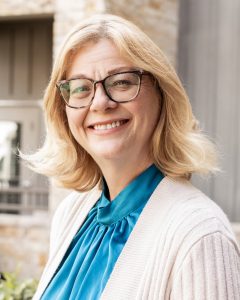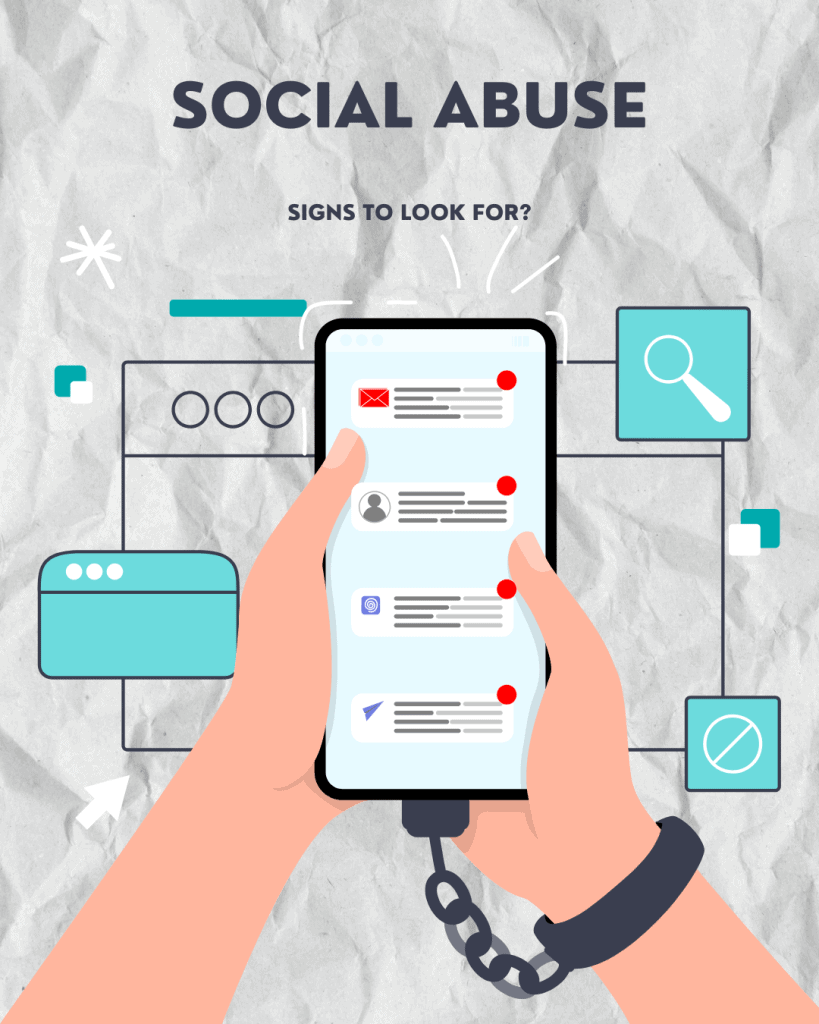💻 When Your Screen Isn’t Safe: Understanding Digital and Social Media Abuse
Dear Friends,
In our connected world, social media and technology have become lifelines — for work, family, and even our healing journeys. But for many survivors of abuse, these same tools have been turned into weapons of control. Abuse no longer stops at the front door; it follows through every ping, post, and message.
Today, let’s talk about technology-facilitated abuse — what it looks like, how to recognize it, and how we can reclaim safety and hope online.
🚨 What Is Technology-Facilitated Abuse?
Technology-facilitated abuse happens when someone uses phones, social media, or other digital tools to control, threaten, or harm another person. It’s a form of coercive control, where intimidation and manipulation extend into our digital lives.
Here are some of the most common tactics and warning signs:
| Tactic | What It Looks Like |
|---|---|
| Monitoring or surveillance | Installing spyware, tracking apps, or secretly checking your phone and messages. |
| Harassment / cyberstalking | Constant calls, DMs, or comments that don’t stop even after you’ve asked for space. |
| Doxing / exposure of private info | Sharing your address, phone number, or workplace online to cause fear. |
| Nonconsensual photo or video sharing | Posting or threatening to post intimate images or manipulated deepfakes. |
| Account control / password lockouts | Changing passwords, locking you out, or demanding full access to your accounts. |
| Public shaming / smear campaigns | Posting lies or insults to damage your reputation and isolate you socially. |
| Digital jealousy / control | Demanding passwords, reading old posts, or controlling who you can follow or talk to. |
These behaviors aren’t just “digital drama.” They are real abuse — and the effects are profound.
💔 The Hidden Impact
Technology abuse creates invisible wounds. Even after leaving an abusive relationship, survivors may still be followed, watched, or humiliated online.
-
It extends abuse beyond physical spaces, making it feel impossible to escape.
-
It isolates survivors, cutting them off from safe online communities.
-
It damages confidence and dignity, causing anxiety, depression, and fear.
-
It erodes safety, as private information can be weaponized in seconds.
When someone feels unsafe on their own phone, it’s not “just the internet.” It’s a direct assault on their sense of peace, control, and hope.
🌱 Hope, Healing, and Digital Safety
At Stronger than Espresso®, we believe that hope can be taught — even in the digital space. Survivors can reclaim their voice, rebuild boundaries, and re-establish safety online.
Here are practical steps to begin healing and protection:
1️⃣ Strengthen your digital safety
-
Do a full device sweep: remove unknown apps, check for spyware, review permissions (camera, mic, GPS).
-
Change passwords and turn on two-factor authentication for every account.
-
Use private or trusted devices when seeking help or storing sensitive evidence.
2️⃣ Protect your privacy
-
Adjust privacy settings on all social accounts.
-
Avoid location tagging or public check-ins.
-
Approve photos and tags manually.
3️⃣ Save and secure evidence
-
Take screenshots, note dates and times, and keep records somewhere safe (even offline).
4️⃣ Build a support circle
-
Create a short list of trusted people who can help if your safety is compromised.
-
Use code words if needed to signal distress safely.
5️⃣ Know your worth and your rights
-
No one has the right to monitor, control, or shame you — online or off.
-
Reclaiming your safety is not only possible — it’s powerful.
☕ Where Stronger Steps In
At Stronger than Espresso®, we focus on the secondary response — what happens after the crisis.
We help survivors heal emotionally, rebuild spiritually, and restore dignity.
We teach hope as a skill — because when survivors learn how to create goals, pathways, and willpower, they reclaim their power over fear.
If you or someone you know is being harassed or controlled through technology, you are not alone. Healing is possible, and safety can be restored — one hopeful step at a time.
💬 Need Immediate Help?
If you are in danger, reach out right now:
-
National Domestic Violence Hotline: 1-800-799-SAFE (7233) or thehotline.org
-
Suicide & Crisis Lifeline: Dial 988 (24/7, free, and confidential)
-
National Human Trafficking Hotline: 1-888-373-7888
-
Elder Abuse Hotline: 1-800-677-1116
💡 Final Word
At Stronger Women®, we believe your story matters.
Your healing is sacred.
And your hope — even online — can shine a light through the darkest algorithm.
You are not alone.
You belong here.
Be seen. Be heard. Be understood.

Dr Brooke Jones
Founder Stronger Women
